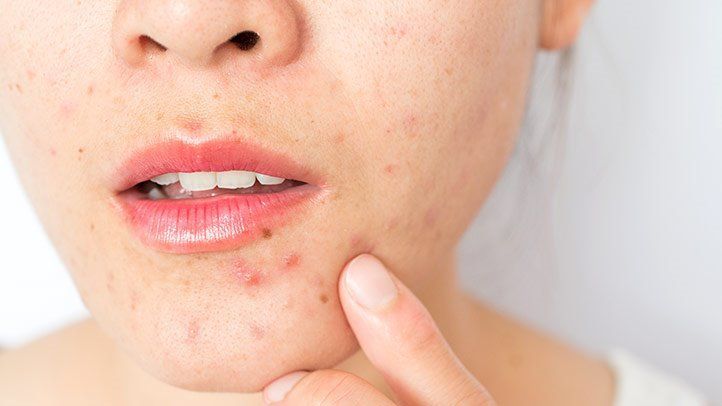Introduction
According to Bharat Bhise, acne is the 8th most common inflammatory skin condition worldwide that occurs during puberty. However, some adults, especially women can experience adult acne when the pores of their skin are not functioning properly. Depending on the severity of the condition, adult acne can be considered mild, moderate, or severe and there are many different factors that can lead to adult acne.
The Causes
Here are a few causes of adult acne:
- Fluctuating hormone levels – Excessive or fluctuating sex hormones can lead to a variety of skin and body conditions including inflammation, excessive production of oil (sebum), pH imbalance, differences in circulation, and more.
Adult acne caused due to hormonal imbalance is often tender, and painful, and features a deep, cyst-like appearance.
- Family history – Certain groups of people are genetically predisposed to having adult acne. In fact, it doesn’t have to be your immediate family members such as your sibling or parent. If a distant relative of yours such as your aunt, uncle, or cousin had adult acne, it is possible you would suffer from the same condition.
- Skin irritation due to hair and skin products – The excessive application of oily and comedogenic skin and hair care products has the potential to trigger unwanted acne in adults. These include styling products, face creams, moisturizers, shampoo, conditioners, make-up, leave-in conditioners, and more. Sharp razors and harsh cleaners can irritate your skin on contact and lead to acne breakouts as well.
- Excessive stress – Exposure to environmental irritants, extreme weather, dehydration, illness, and lack of sleep can lead to physical stress which can trigger hormonal changes in your body. This can lower your immunity, lead to inflammation, and trigger acne.
When you experience too much emotional stress, your adrenal glands increase the production of the stress hormone called cortisol. This also increases the production of sebum which makes acne worse.
- Foods – Researchers have yet to find a definitive link between the consumption of sugary food products, fast foods, dairy, and more and adult acne. However, certain people believe that consuming excessive fast food, flour products, chocolates, and sweets can contribute to adult acne.
The best way to know whether what you are eating is making your acne condition worse is to keep a food or diet diary and check it often to notice any patterns that can clear the confusion.
- Medications – Certain medications such as epilepsy medications, corticosteroids, and antidepressants have been noted to cause acne in certain groups of adults.
- Undiagnosed medical conditions – Many health conditions and skin conditions can lead to acne breakouts or resemble acne. These include Cushing syndrome, rosacea, polycystic ovary syndrome (PCOS), keratosis pilaris, and perioral dermatitis.
Conclusion
Bharat Bhise suggests you don’t rely on home remedies such as topical treatments and oral supplements to treat adult acne since these can actually further damage the skin barrier. Instead, it is recommended you consult a reputable dermatologist who can evaluate your skin type and offer you personalized treatment and care.
You may also like
-
Embrace the Essence of the North: Experience Clean Nicotine with Premium Nordic Spirit
-
Discover Treatment Options For Adderall Addiction in Houston, TX
-
How does body chemistry impact your response to HHC gummies?
-
Role of synthetic urine kits in laboratory calibration
-
How can nutrition support anabolic steroid results?


